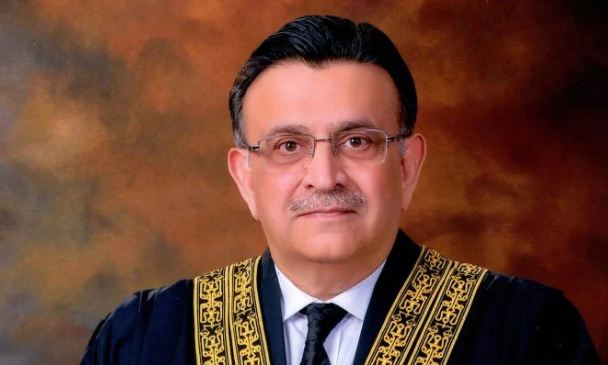The bill ensures that the three senior-most judges of the Supreme Court would decide on any suo motu case
Ansar M Bhatti
ISLAMABAD, MAR 28 /DNA/ – The federal cabinet approved the draft of a legislation on Tuesday seeking to curtail the discretionary powers of the Chief Justice of Pakistan, leaving the decision of any suo motu case up to the three senior-most judges of the apex court. The Law Minister later presented the bill in the National Assembly for approval.
The bill ensures that the three senior-most judges of the Supreme Court would decide on any suo motu case being taken up by the apex court under Article 184 (3) of the Constitution.
The bill, titled ‘The Supreme Court (Practice and Procedure) Act, 2023’, allows appeals within 30 days of a verdict being issued on a suo motu case and enforces that a bench be constituted to hear such an appeal within 14 days.
Sources told media that the government is expected to present the bill in the Senate also soon.
The development comes amid a growing debate in the country over the discretionary powers of the Chief Justice of Pakistan to constitute benches, ‘fix’ cases, and initiate public interest proceedings under Article 184 (3) of the Constitution.
The experts have expressed mixed reaction over this bill. Many believe the timing of the introduction of the bill is ‘intriguing’ and it may invite the attention of the Supreme Court.
Salman Akram Raja, the lawyer of Imran Khan, said that the government needs to amend the Constitutions in order to change Supreme Court laws. He feared the laws shall further create divisions among the judiciary.
Likewise another senior lawyer and former Chairman Senate Wasim Sajjad was of the view that there is no need to amend the Constitution for this since the law only relates to procedural changes. He was of the view that since the law relates to the Supreme Court therefore the apex court may also be taken on board before the enactment.
It may be mentioned here that the new law may not affect the ongoing case where a five member bench is hearing the election commission’s decision to delay the elections; however as per the new law the Supreme Court verdicts can now be challenged in front of a larger bench. So even if this five-member bench gives a verdict for holding of elections within 90 days or bare minimum time, then the government, as per the new law, shall have the right to challenge the decision.
Right now, when the Supreme Court announces a verdict it is considered final though there is a provision of review yet scope of the review is very limited.=DNA
==========











